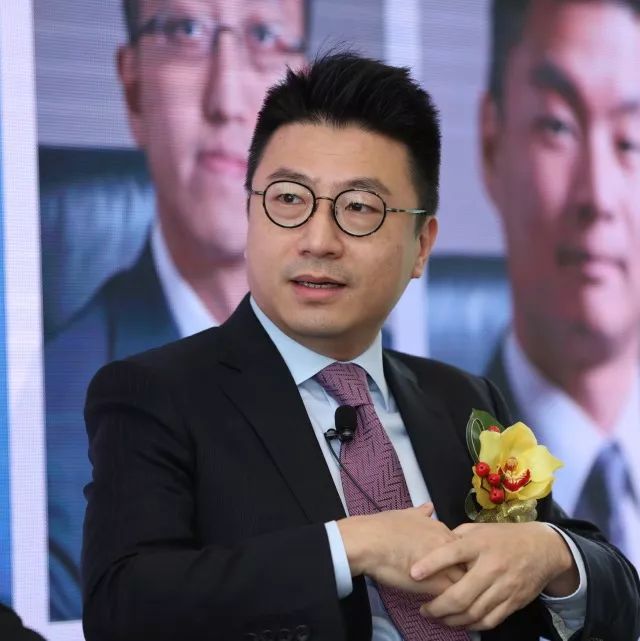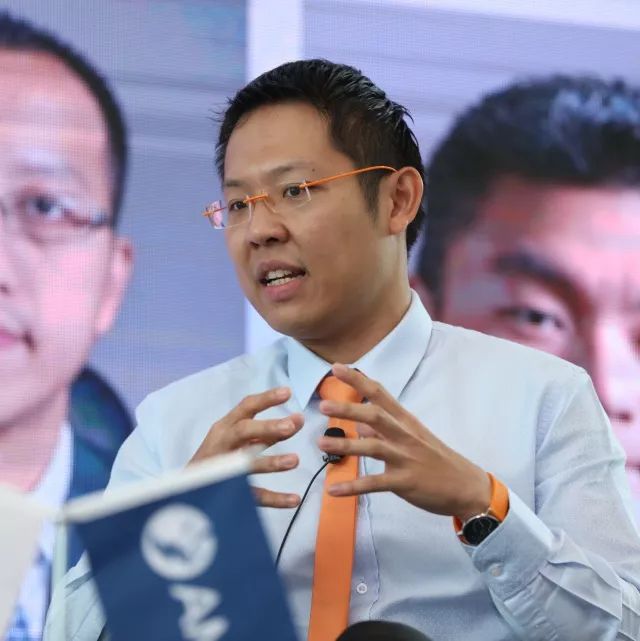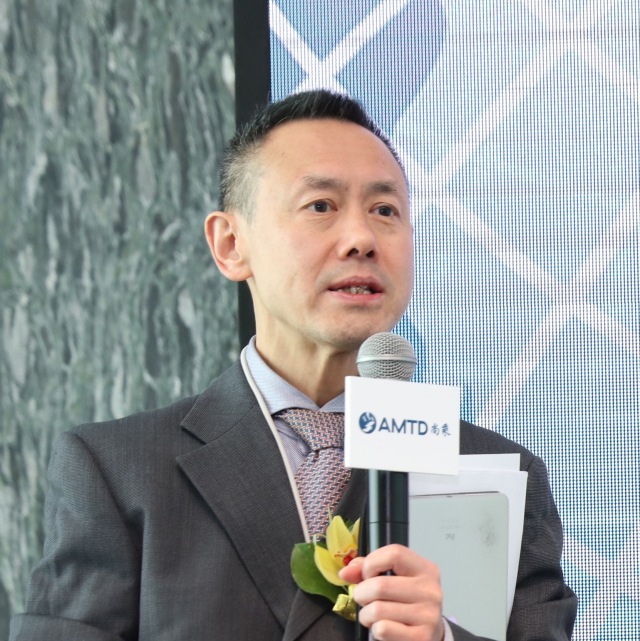【Brainstorming with elites in AMTD】No.2: China Leads Emerging Asia to Play Greater Role in Capital Markets
As a leading comprehensive financial institution in Hong Kong, AMTD Group has always been committed to the development strategy of rooting in Hong Kong, serving China and expanding across the globe. AMTD has also been focused on connecting mainland China, Hong Kong and global capital markets with our unique resources and gathering global talents and mindsets. The global perspective would give AMTD a full play to financial wisdom and power. On Nov. 24th 2017, the 2nd AMTD Global Advisory Committee Conference was officially held in Hong Kong. The conference brought together global financial institutions’ core management, representatives of investment institutions, and scholars to discuss the investment opportunities in global financial markets and the future development trends.
In recent years, the influence of Chinese-funded institutions in Asia capital markets has continued to increase, and international institutional investors have also started to pay increasingly more attention to the development of Asian markets. The 2nd AMTD Global Advisory Committee Conference specially invited a group of experienced elites to discuss a topic on “China Leads Emerging Asia to Play Greater Role in Capital Markets”. The discussion panel includes Gordon Ip – Chief Investment Officer of Value Partners Group's Fixed Income Investment Department, Yinglan Tan – CEO and managing partner of Insignia Venture Partners, Baoshu Huang – head of North Asia Debt Capital Market in ANZ, Mark Lo – Head of Fixed Income and CIO Office at AMTD Group and William Fung – Head of CIO Office at AMTD Group. The panel discussion was moderated by Allen Cheng, Asia Bureau Chief of Institutional Investor.

Gordon Ip - Chief Investment Officer of Value Partners Group's Fixed Income Investment Department (4th from left), Yinglan Tan - CEO and managing partner of Insignia Venture Partners (2nd from right), Baoshu Huang – Head of North Asia Debt Capital Market in ANZ Bank (1st from right), Mark Lo – Head of Fixed Income and CIO Office (2nd from left) and William Fung – Head of CIO Office (3rd from left), Allen Cheng – Asia Bureau Chief of Institutional Investor (1st from left)

Gordon Ip - Chief Investment Officer of Value Partners Group's Fixed Income Investment Department
Gordon Ip, the Chief Investment Officer of Value Partners Group’s Fixed Income Investment Department is in charge of the credit and fixed income investment business at Value Partners Group. He has over 20 years of investment experience and has a deep understanding of the Asian credit markets. At the meeting, Gordon expressed the great confidence in China’s credit market, given the credit fundraising size of China market accounted for half of the global credit issuance. The Federal Reserve’s continuous and stable increment on interest rates will provide an investor friendly and constructive environment for credit investment.

Yinglan Tan – CEO and managing partner of Insignia Venture Partners
Yinglan Tan – the CEO and Managing Partner of Insignia Venture Partners and “Young Global Leader” by the World Economic Forum in 2012, was Sequoia Capital’s first partner in Southeast Asia and the CEO of Singapore and India office. He brought a significant number of symbolic investment opportunities for Sequoia Capital. At the meeting, Yinglan Tan expressed his own unique insights in the venture capital sector in the Southeast Asia markets. He believes that China capital market is still on the rise. He reckons that the current rapid growth of China capital market and its huge potential in the future are a result of China’s massive economic scale, rapid financial innovation and organic combination and development of finance and technology.

Baoshu Huang – Head of North Asia Debt Capital Market at ANZ
Baoshu Huang, Head of North Asia Debt Capital Market at ANZ stated that the current market is very different from that when he started the debt capital market business 15 years ago. Regarding the markets in Asia (excluding Japan), China’s transactions accounted for 65% of the market, and the number is still as high as 40% even including Japan. At the same time, the issuers’ types in the Asia market are getting increasingly diversified. In the past issuers were mostly state-owned enterprises, whilst the current issuers also include some regional companies. More and more investors have started to pay attention to some private companies and it is believed that the market size will further expand.

William Fung – Head of CIO Office
William Fung, Head of CIO Office at AMTD Group also expressed that if investors are optimistic about Asia, they will definitely be positive about China. The diversity of Asian market investors is very strong. There are global investors, Asian private banks as well as Asian local investors. In the meanwhile, many Asian issuers also have investments in Asian capital markets, including funds, banks and a variety of capital. In the past 2 years, AMTD Group has completed nearly 60 single bond issuances, successfully assisting numerous high-quality companies to open the door to the international debt capital markets and establish an extensive and in-depth cooperation network with different types of investors.

Mark Lo – Head of Fixed Income and CIO Office at AMTD Group
Mark Lo, Head of Fixed Income and CIO Office at AMTD Group reckoned that China has been playing a crucial role in the debt capital market over the past 10 years. Chinese issuers only took 10% - 15% of the market 15 years ago, whilst the number reached 50% 3 years ago and it’s currently over 60% already. He is confident that the importance of the Chinese market to Asian market will keep rising.

Allen Cheng, Asia Bureau Chief of Institutional Investor
Allen Cheng, Asia Bureau Chief of Institutional Investor advised that, in order to understand the influence of Chinese capital in the Asian markets, the most significant figure to look at is the investment bank league table in the Asia capital markets. The league table was previously filled with foreign banks but now over half of the companies on the table were Chinese banks. He pointed out that financial institutions must understand and follow that general trend to be able to succeed in the markets.

